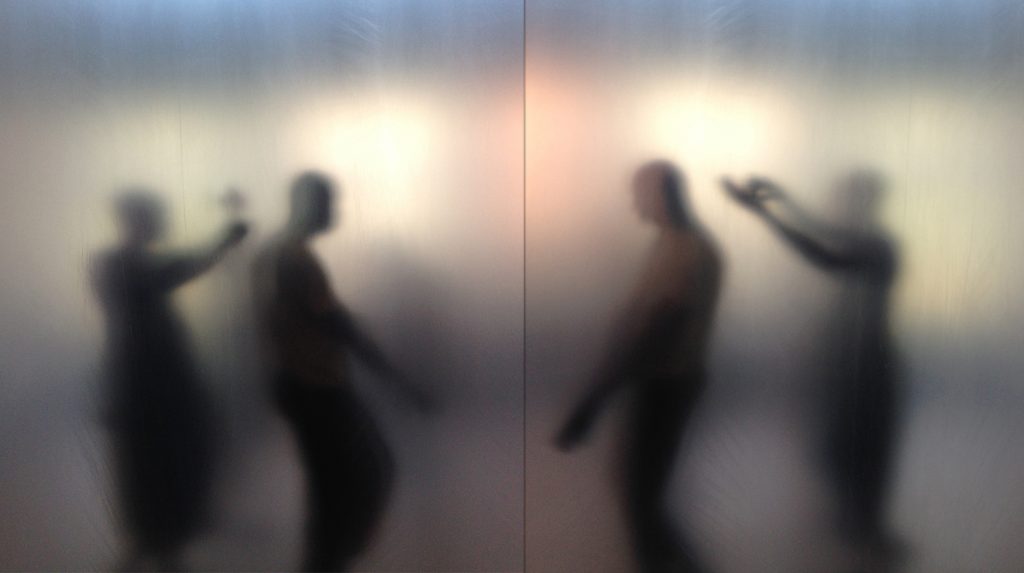Okwui Okpokwasili & Peter Born: Sitting On a Man’s Head
Friday, February 28, 6-10pm
Friday, March 6, 6-10pm: We are no longer taking advance ticket reservations for this evening at this time. However, there will be a limited number of tickets available for sale the night-of at 6:15pm and 8:15pm. Night-of tickets are $25, cash-only.
Friday, March 13, 6-10pm: We are no longer taking advance ticket reservations for this evening at this time. However, there will be a limited number of tickets available for sale the night-of at 6:15pm and 8:15pm. Night-of tickets are $25, cash-only.
Friday, March 20, 6-10pm: We are no longer taking advance ticket reservations for this evening at this time. However, there will be a limited number of tickets available for sale the night-of at 6:15pm and 8:15pm. Night-of tickets are $25, cash-only.
The box office for Sitting On a Man’s Head will open at 5:30pm. Ticket holders are welcome to enter any time between 6-9:45pm to experience this durational practice.
One of PLATFORM 2020: Utterances from the Chorus‘s central questions “How do we weave a collective song?” builds on the ideas behind Okpokwasili’s and Born’s durational piece, Sitting On a Man’s Head.
Okwui’s 2016 research into Nigerian women’s embodied protest resulted in the durational performance created by Okwui and Peter. The practice known as “sitting on a man” was a disruptive durational practice and a public act of shaming carried out by a collective of women in Southeastern Nigeria. It involved gathering in the private courtyard of a colonial official, dancing and singing songs that expressed their grievances and was designed to embarrass the official until he promised to address their concerns. This practice was used by women as a critical tool to protect their economic and social interests.
Rather than “shaming” or seeking redress, Okpokwasili’s and Born’s Sitting On a Man’s Head is an attempt to create a “space of restoration and restitution,” write Okpokwasili and Born. “We are engaged in a creative practice concerned with the formation of new bonds of kinship. In collaboration with a select group of artists, we use the tools of our performance practice to build a space for the creation of an improvisational public song composed of aural and choreographic gestures. Can a shared creative practice be generative and generous while also being instructive in imagining new possibilities of communal relations?”
The work features a rotating chorus of performers, who will activate the performance: Martita Abril, Peter Born, Jennifer Brogle, mayfield brooks, Leslie Cuyjet, André Daughtry, Eisa Davis, Brittany Engel-Adams, Lily Gold, Naja Gordon, Melanie Greene, Audrey Hailes, Remi Harris, Jasmine Hearn, Justin Hicks, Shayla-Vie Jenkins, Chaesong Kim, Tendayi Kuumba, Breyanna Maples, Priscilla Marrero, Anais Maviel, Okwui Okpokwasili, Maya Orchin, Kay Ottinger, Jess Pretty, Greg Purnell, Hans Rasch, Katrina Reid, Jean Carla Rodea, Lily Bo Shapiro, Samita Sinha, Eleanor Smith, Tatyana Tenenbaum, David Thomson, Pyeng Threadgill, Asiya Wadud, Charmaine Warren, AJ Wilmore, Anna Witenberg, and Nehemoyia Young.
Part of PLATFORM 2020: Utterances from the Chorus
Accessibility Danspace Project’s main entrance is fully wheelchair accessible via ramp. A same-level restroom is available near Danspace Project’s main performance space in the church sanctuary.
